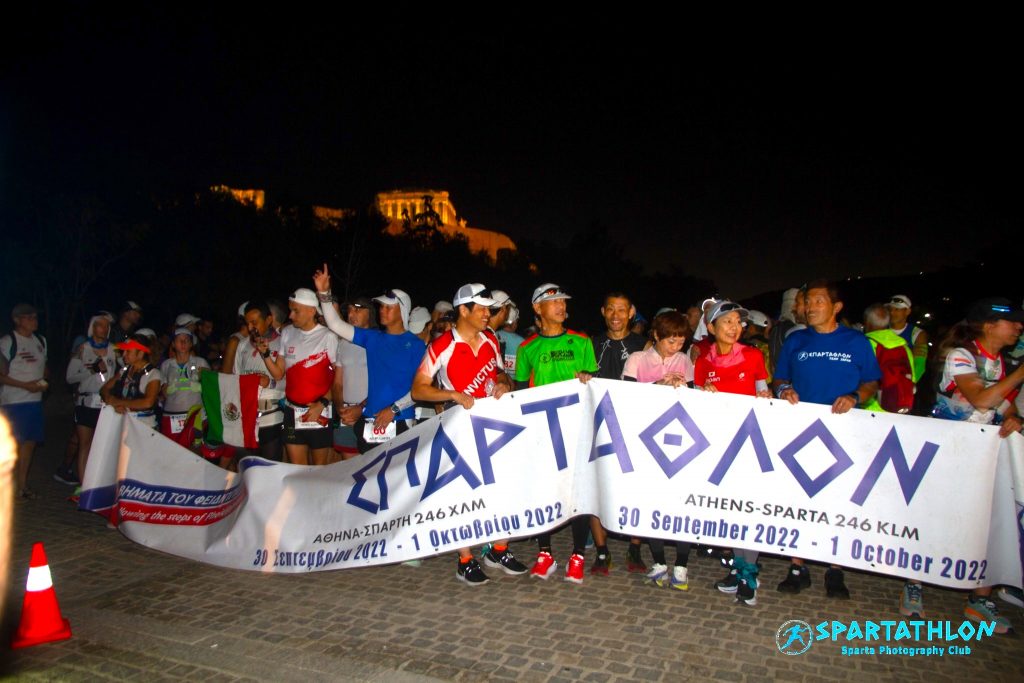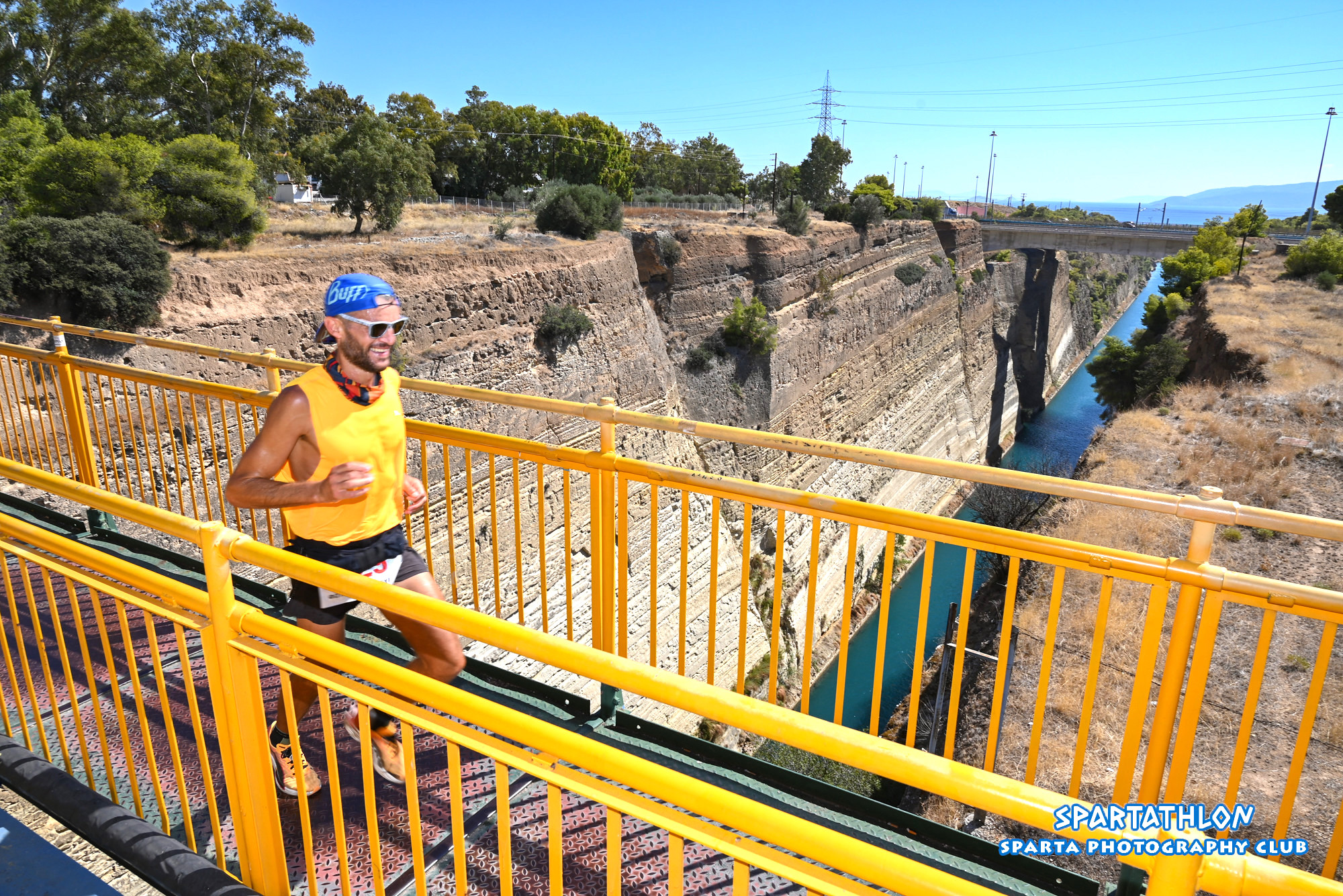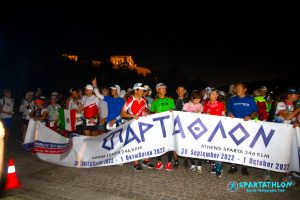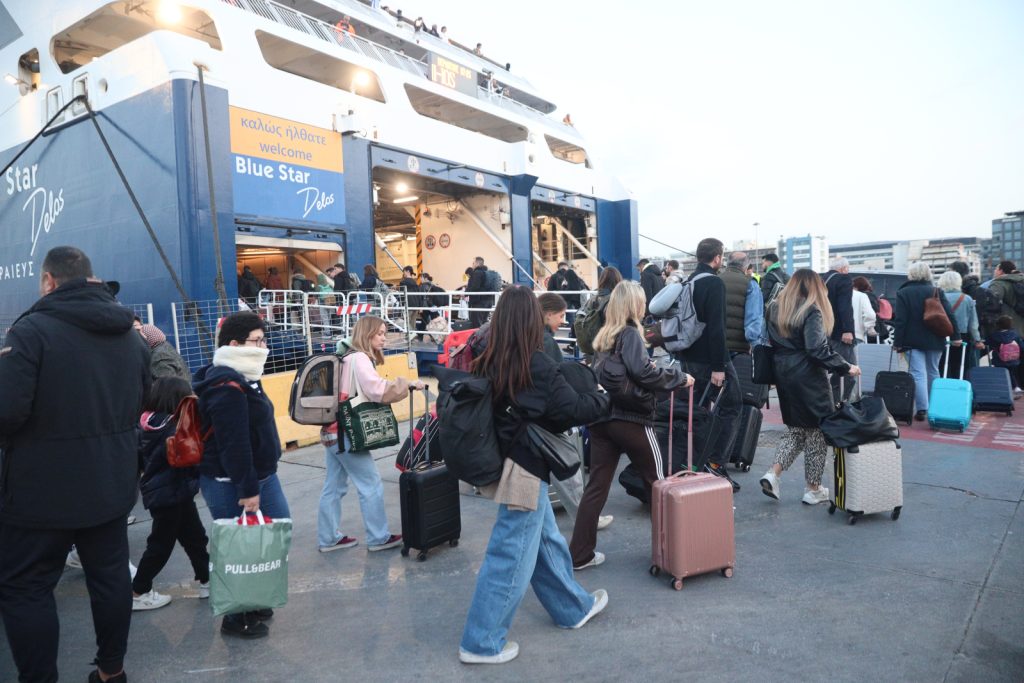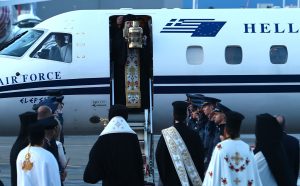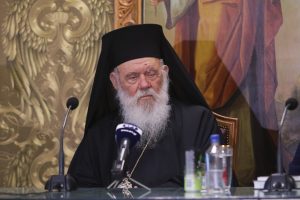Just before day break, some 400 athletes from across the globe in their bright shoes flags in hand gathered at the foot of the Acropolis in Athens to set off for Sparta for the historic Spartathlon.
The annual long-distance race is inspired by ancient Greek messenger Pheidippides, who ahead of the Battle of Marathon ran from Athens to Sparta in 490 BC in a day and a half seeking help against the invading Persians.
Runners have 36 hours to complete the 246K-race (160 mile) and reach Sparta, where they are welcomed in the final stretch by dozens of children on bikes and cheering crowds. The reward for these bold athletes is to pay tribute to Spartan warrior king Leonidas by touching his statue…and an olive wreath.
To Vima English Edition followed the runners through towns and villages, across ancient sites, past cities and into the mountains, and spoke with this year’s winner Fotis Zisimopoulos, the organizers, volunteers, and other runners about the feat.
Ultrarunning: A Test of Body and Mind
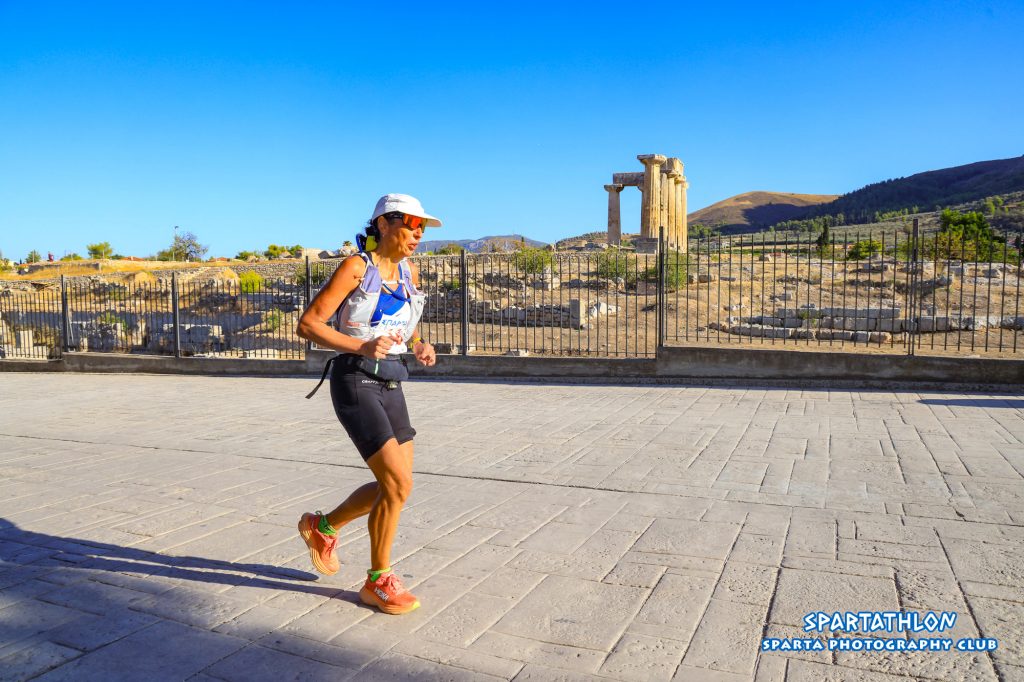
Athletes come to Greece to run across ancient sites, towns, and villages on their way to Sparta.
Greek ultrarunner Fotis Zisimopoulos won the 42nd Spartathlon for the fourth time in a row reaching Sparta in 18 hours and 13 minutes. Zisimopoulos has inspired many Greeks to hit the road. “I’m just adding a small stone to a great legacy left to us from our predecessors,” he tells To Vima English Edition.
What does an ultrarunner think about during those grueling 246 kilometers? “It’s like therapy, I think about my family, problems, the strategy of the run,” the 41-year-old says.
A police officer from Agrinio, Zisimopoulos has become an urban hero of sorts. Fellow runner George Dimoulas even painted a graffiti of him on the road to Corinth while hundreds of people waited for Fotis in villages along the way in the early hours to cheer him on.
“I am very grateful for this and I want to give back all the positive energy I have received,” he says.
What makes an ultrarunner? “Love for the race, passion, discipline, calmness, and patience,” Zisimopoulos explains. “It’s a strange sport. It takes time to see the results of your efforts that’s why it requires being ready to face hardships, turnarounds, and lots of wear and tear.”
“We’re human. There are many difficulties in a race of this kind,” he adds, acknowledging the vital role of his coach, Dimitris Kasimis. “We’re like family.”
For Fotis, the greatest reward has been self-improvement. “Ultrarunning has changed me in great ways. I used to be very edgy,” he admits. “Now I’m more relaxed, composed, in balance, and above all, I’ve learned to adapt.”
Volunteers: The Power of Love
The Spartathlon owes much to its volunteers, 400 this year, who work tirelessly day and night at 76 checkpoints to Sparta, says Vangelis Polymeris, president of the non-profit Spartathlon Association.
Polymeris tells To Vima English Edition that finding so many volunteers is no easy task. The association has been organizing the event for 42 years arranging participation for hundreds of athletes. Finding volunteers and financing are the greatest challenges.
Each checkpoint offers runners water, food, and medical support, and above all encouragement and motivation. “As a runner and volunteer, I can definitely say that knowing you’ll find familiar faces, people who will care for you when you reach one of the toughest points in the race; after having already run 157K does wonders,” Hara Livaditi tells To Vima English Edition.
Hara is one of the volunteers manning the 46th checkpoint. From here, runners go off road into the mountains with 87.74 kilometers left to Sparta. You can see them approaching in the pitch dark with their head lights on. Many usually reach here after 1 a.m. That’s why this checkpoint is known as “The Station of Love”.
Hara, an ERC and Kids Save Lives instructor and a founding member of The Hope Runners, has been volunteering for the Spartathlon for the past four years. “It’s a very special race and ultrarunners very special people,” she explains. “It is so rewarding to be able to offer support to someone daring this race.”
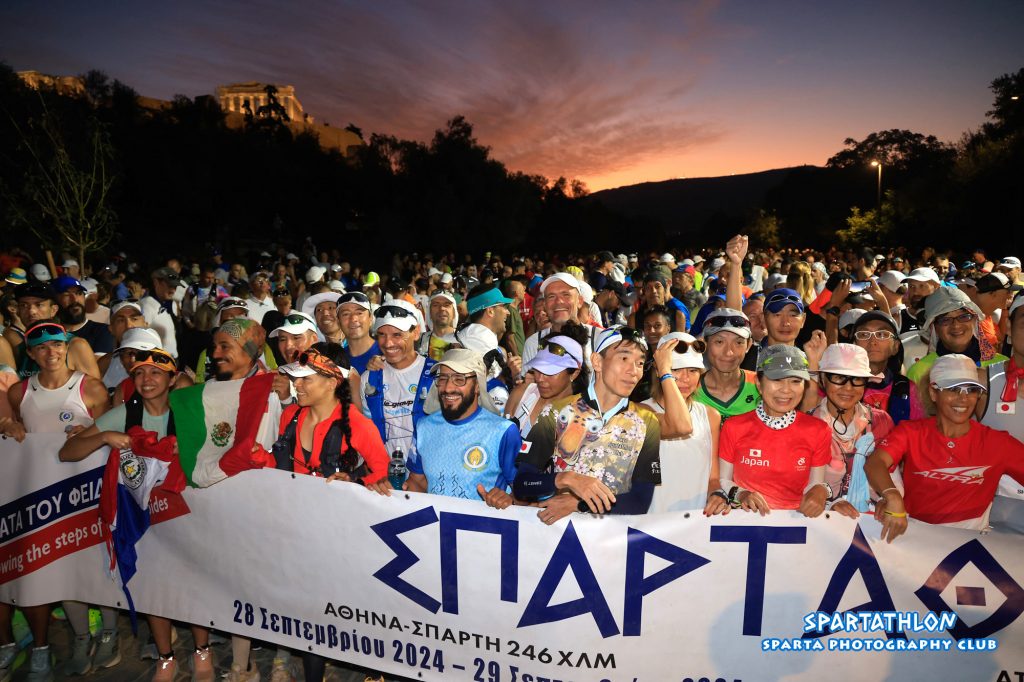
Nearly 400 athletes from 55 countries gathered at the foot of the Acropolis on Sept. 28 to run 246 kilometers to Sparta for the 42nd Spartathlon.
An Example of Good Sportsmanship
The Spartathlon is much more than a race, Polymeris says, it’s a community fostering good sportsmanship. The race is not as well known in Greece as it is internationally, he says, which creates challenges when trying to secure media and government support. “There’s a lot of red tape,” he adds, and yet, the Spartathlon generates more than 1 million euros in revenues, supporting Greece’s tourism sector and promoting the country worldwide in the best way.
Most of the runners come back each year to try their luck. They even sport tattoos of Greek motifs or Pheidippides on their legs to commemorate their runs.
Bob Hearn from California is in Greece supporting an American runner. He’s run the Spartathlon six times. “The history and meaning of the race resonated with me, but even more so the respect the Greek people show athletes from all over the world,” he tells To Vima English Edition.
Finisher Steve Gordon from the UK ran the race for a fifth time. Why does he come back for more? “The finish line, the children and people in the villages cheering us on, the energy and the ‘bravos’,” he tells To Vima English Edition.
Polymeris believes the historical backdrop, which takes athletes past ancient landmarks like Corinth, Nemea, Eleusis, and the Acropolis, keeps them coming back. He adds that runners become part of a close-knit family during the race with most eager to return.
“So, you understand,” Polymeris concludes, “our volunteers start preparing for next year’s Spartathlon as soon as this one ends.”
